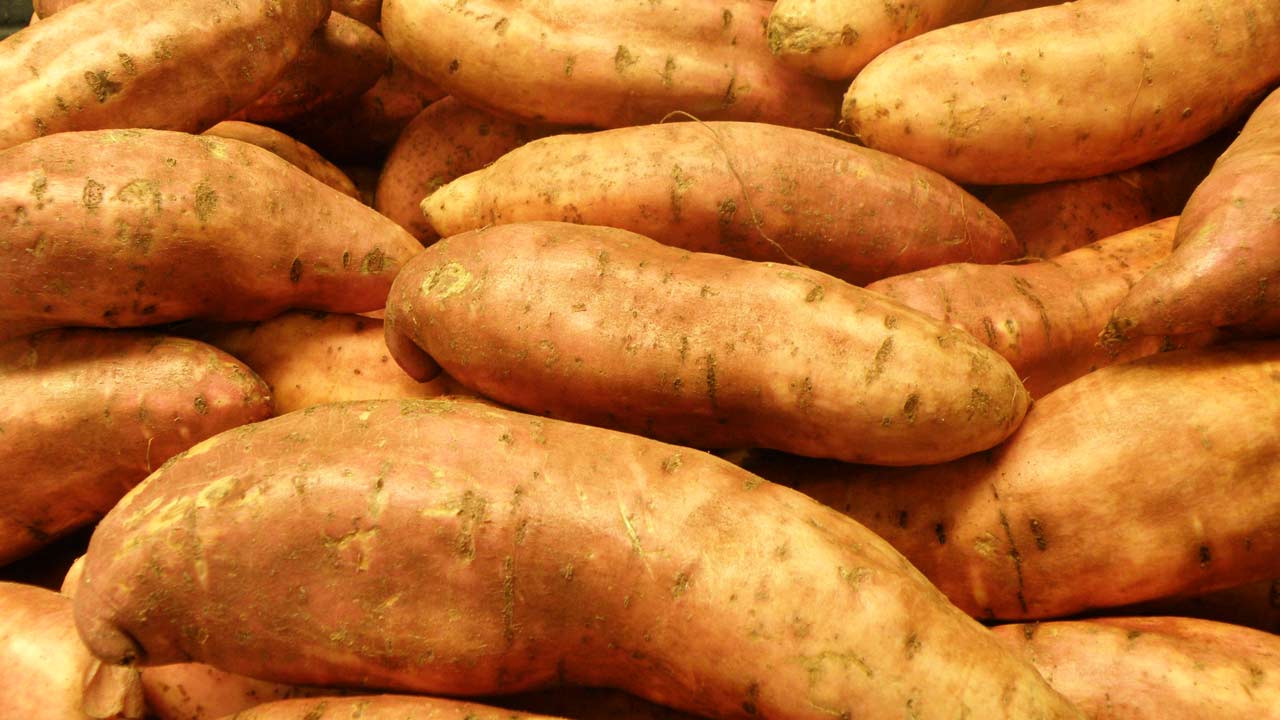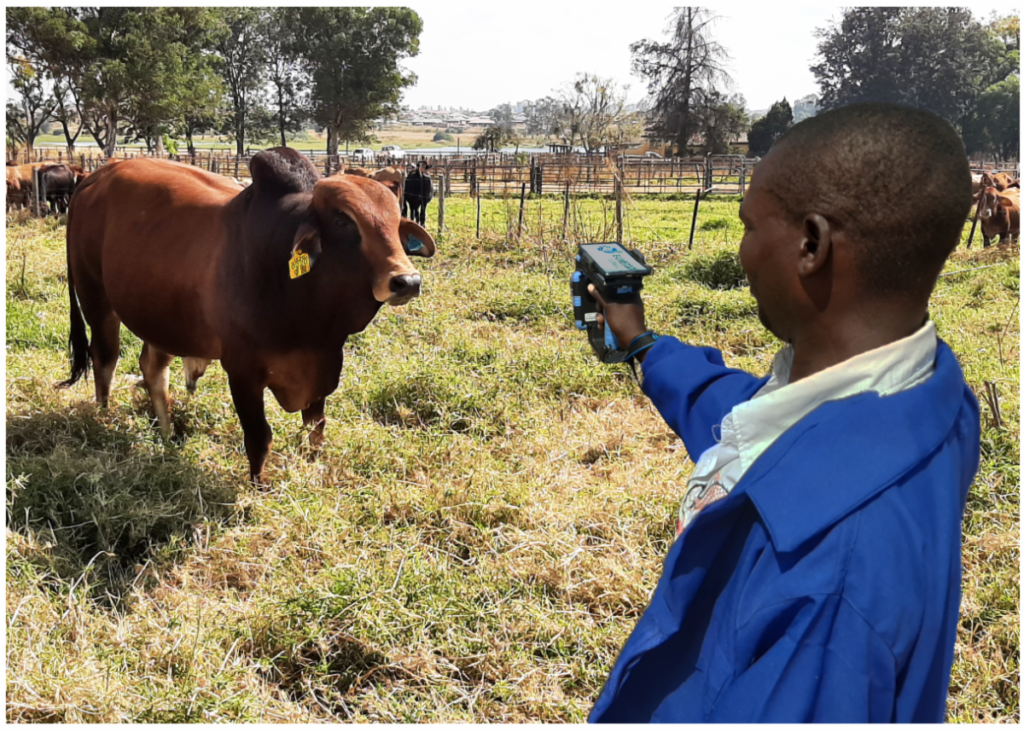
Nigeria has huge potential in many arable crops, including grains, cereals and pulses. To its credit, the country is the largest producer of cassava tubers and yam in the world. It is also the largest producer of sweet potato in West Africa and ranks top among world largest producers. Agricultural scientists, therefore, have said the economics of sweet potato could help boost food security, wealth creation and import substitution as stipulated in the government agricultural policy.
Obviously to readjust and realign the economy to resolve socio-economic challenges facing the country, the Federal Government, in its Agricultural Promotion Policy 2016 – 2020, indicates that: “The go forward federal priorities (in partnership with state governments) will be the following: food security; import substitution; job creation; and economic diversification.”
Root and tuber crops professionals have, however, consistently submitted that to achieve the government’s objectives of increasing food production, adding value to such crops for wealth and job creation, and helping the move to diversify the economy, the country should emplace certain food production infrastructure, motivate processors to avoid wastage and ensure off-takers in a guaranteed market arrangement. They have also listed ways of increasing production of the crop to boosting food security and achieve the policy objectives of the government.
Boosting sweet potato production
The country has suitable arable land, but other inputs are in short supply. Despite that the potato vine as a planting material is less expensive, land preparation is expensive and grossly un-mechanised. Most of the sweet potato farmers still use manual land preparation implements, and their capacity to intensify production and productivity per hectare is hampered. The use of hoes and other crude tools impede their ability to cultivate more than one or two hectares. Manual weeding is back-breaking, and according to the International Institute of Tropical Agriculture (IITA), it takes away most children from schools and learning while the weeding on root and tuber farms last.
Therefore, experts harp on farm mechanisation, which each local government can encourage with fleets of functional tractors and land preparation implements.
Other experts say to maximise yield per hectare without necessarily expanding hectares under cultivation, inputs such as fertiliser; insecticides fore pest control; herbicides for weed management and purified vines as planting materials of improved varieties should be made available to farmers cultivating the root crop.
The foregoing, if done meticulously across the production states of the country, would not only increase Nigeria’s production from 3.92 million metric tonnes yearly, and would force exploration of the crop as a raw material to deepen industrialisation, thereby creating jobs, wealth and boosting the diversification efforts of the government.
Dr Richardson Okechwukwu, a cassava breeding and value chain specialist, said sweet potato is an excellent source of starch and its production could help the nation to meet the shortfall in starch required by the industrial users.
He added that Orange Flesh Sweet Potato, bio-fortified with vitamins A and C, among others, is an excellent source of vitamins and minerals, and that the nutritional content would improve health of many malnourished children and vulnerable persons if cultivated, embraced and distributed across the country.
“Nigeria will benefit by scaling the production of crop, as it will serve both as food security and nutrition, as well as a potential industrial crop as it is used in Europe,” Okechukwu said.
Part of what could lead to greater production is rural infrastructure development and irrigation facilities for dry season cultivation.
Ways to industrialise
Inclusion of off-taking arrangements for potato in the Anchor Borrowers’ Programme, where industrial users are linked with producers and financiers at pre-production agreed prices, is viewed by stakeholders as a potential catalyst for cassava production, value chain development and associated benefits.
Maximising industrialisation
A major driver of greater production is demand. Demand for sweet potato in Nigeria, for now, is predominantly driven by direct consumption, unlike maize and cassava which have been greatly industrialised for feed and ethanol production respectively, among other products.
Prof. Lateef Sanni, President, International Society for Tropical Root Crops, while suggesting ways to expand utilisation of the crop, said creating bigger market opportunities for sweet potato is very important, although the roots can be boiled, baked or roasted for direct consumption.
Suggesting greater utilisation of sweet potatoes, Prof. Sanni said: “Roots can be used for weaning food, complementary school feeding, and animal feeding.” This, he explained, would expand the product base of the crop, and in turn, would drive more production, demand-based research, and social economic benefits.
Not done, the root and tuber expert said: “It can be used as feedstock into alcohol, starch, glue or bioenergy. Also, the roots can be produced into puree for bakery products or yoghurt. The chips or flour serves as ingredient for other confectioneries.”
Sanni emphasised that “If we properly encourage value addition, processing and storage investment, sweet potato has potential to create more jobs, wealth and reduce post-harvest losses.”
Small-scale processing
Mr Olusola Olunowo, Managing Director of Agropark Development Company Ltd, an agro-resort investment at Ijale, in Abeokuka North Local Government area of Ogun State, argued that nationwide small-scale processing of the product will create a huge demand that could mop up the crop and stimulate more production.
Olunowo said his farm processes Orange Fleshed Sweet Potato with cassava to make fiber-full garri suitable for soaking and making morsels as part of efforts to develop new products and deepen utilisation of the crop.
Dr (Mrs) Olapeju Phorbee, a former Country Manager, International Potato Centre, Abuja, equally said sweet potatoes of any variety are harvested, washed, grated, fermented and fried into grits like garri. Orange Fleshed Sweet Potato, however, is more nutritional and suitable for combatting malnutrition, stunting, wasting and other nutrient-deficient diseases.
Phorbee explained: “You can use it to make garri. It is the same procedure. You peel, wash, grate and bag for fermentation. The period of fermentation depends on how sour you want it. You can have it like Ijebu garri if you prolong the fermentation period. It ferments very fast because of the sugar content. After fermentation, you remove water (press) and then roast at not-too-high temperature so that you don’t lose all the pro-vitamin contents.”
On the agronomics of the crop, Phorbee said: “With healthy planting materials and good practices, a farmer can get up to 15 metric tonnes per hectare and you can do all-year planting if you have access to water, because within three to four months, they are ready for harvest.”
At the post-harvest and potato product development level, she said: “We have been able to substitute wheat flour for OFSP puree in bread production and pastries, up to 35 per cent. OFSP flour can also be used, but for high pro-vitamin A retention, we promote use of puree.
“We have been able to make pastries like chin-chin, puff-puff, cakes, cookies, etc., so that women at micro, small, and medium-scale levels can engage in them for income generation.
“The leaves are used for vegetable soup and the stems are used as livestock feeds for fish, pigs, rabbits and cattle. In fact, some people call it animal’s delight, as animals love to eat this.”
Hence, Nigeria should work not only on industrialisation of the crop, but also on penetrating the export market by standardising packaging, meeting agricultural good practice requirements and working on necessary certifications for exporters of fresh produce.
In an overview of the global sweet potato market by FreshPlaza.com, demand for sweet potato in Europe had increased by 12% in recent years, consumption had exceeded 300,000 metric tonnes, and the market growth curve has not flattened. Also in Israel, high price in the domestic market has reduced exports significantly.
Experts also suggest that the Nigeria Export Promotion Council, the National Agricultural Quarantine Service, the Nigerian Custom Service and the National Agency for Food, Drug Administration and Control (NAFDAC) should synergise with food exporters to focus attention on exports of sweet potato as a food security crop that has potential to boost the foreign exchange earnings of Nigeria, improve the agriculture’s contribution to the country’s Gross Domestic Product growth and turn the fortune of farmers around.






